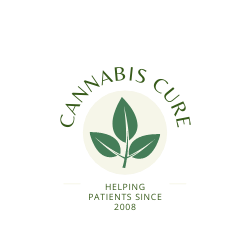ADHD
Attention deficit hyperactivity disorder, or ADHD, is a mental health disorder that consists of a persistent pattern of behaviours broadly described as inattention, hyperactivity, or a combination of both, and is the result of a developmental impairment of the brain’s self-management system. This impairment results in a lack of focus, wandering off tasks, talking excessively, fidgeting, acting impulsively, being disorganised, and being chronically late, among many other behaviours. While most of us complain of some of these, to be diagnosed with ADHD, the individual tends to suffer from most of these and to the point where their relationships, school work or job are affected.
What Is The Difference Between ADHD and ADD?
ADD, or attention deficit disorder, was previously used to describe people who have problems paying attention but aren’t hyperactive. The type of ADHD where the individual tends to be predominantly inattentive is now used in place of ADD so ADHD is the current overarching name of the condition.
What Are The Types Of ADHD?
Primarily Hyperactive-Impulsive Type ADHD describes people with hyperactive ADHD who struggle to stay still, who interrupt others, shout out answers, and struggle with self-control. This is more common in children and men.
Primarily Inattentive Type ADHD describes people with inattentive ADHD, who tend to make mistakes due to difficulty sustaining attention, and poor organisational skills. They are forgetful, easily distracted, and lose things. This is more common in adults and girls and was formerly known as ADD.
Combined Type ADHD describes people who demonstrate six or more symptoms of inattention and six or more symptoms of hyperactivity and impulsivity.
When Are Sufferers Diagnosed?
Most ADHD sufferers are diagnosed between 6-years-old and 12, which explains ADHD’s most obvious fallout – poor school performance – but plenty of adults slip through the net and, according to the Royal College of Psychiatrists, are more likely to experience depression, anxiety, feelings of low self-esteem, drug misuse and overwhelm. Some of the symptoms in adults include a lack of focus or hyperfocus, disorganisation, time management problems, and impulsivity.
What Causes ADHD?
While the exact cause is not entirely understood, some research states that ADHD is an inherited neurological disorder and that the way ADHD is inherited is likely to be complex and not related to a single genetic fault. Research also says that it is an insufficiency, or systemic malfunction, in the distribution of the neurotransmitter dopamine, a motivation attention chemical. Without dopamine, it can be difficult to focus on what is important and what is not.
In his book Scattered Minds, Dr Gabor Maté, who was diagnosed with ADHD in his early fifties, states that ADHD is neither predetermined nor irreversible and that absent-mindedness is not a disease but a defense mechanism against stress. He describes how a child under constant stress, in utero or childhood, survives by tuning out, which happens as the brain develops, therefore stopping the dopamine circuits from developing as they should. Dr Maté says that ADHD is a dissociative response to the environment and his book describes how to promote the development as an adult or an older child.
How Can Medical Cannabis Help With ADHD?
A 2012 paper reported that mice with reduced social investigative behaviour, hyperactivity, as well as reduced attention span, were ‘normalised’ when treated with cannabidiol. A 2020 study from the Rambam Maimonides Medical Journal found that high doses of phyto-cannabinoids and terpenes (40–70g) around six times per day compared to low medical cannabis doses (20–30g), allowing for a higher occurrence of stopping all ADHD medications. There was also an association between a lower Adult ADHD self-report scale score and consumption of high doses of cannabinol (CBN), but not THC.
Because ADHD involves a shortage of dopamine, research has shown that medical cannabis has a therapeutic value. Dr. David Bearman, a leading medical cannabis doctor, says that cannabis appears to treat ADHD by increasing the availability of dopamine and says:
“Almost universally, ADHD patients who therapeutically used cannabis reported it helped them pay attention in lectures, focus their attention instead of thinking of several ideas almost at the same time, and helped them to stay on task and do their homework.”
What Other Action Can Be Taken?
Meditation has been proven to help those with ADHD while support groups say that using lists, keeping a calendar, giving yourself more time than you think is necessary, dealing with mail on a daily basis, and setting reminders are good ways to help you get and stay organised.
Further Reading
How and where to safely buy RSO medical cannabis oil online
Help and Advice
If you need advice or help with Medical Cannabis and RSO, please use the contact form provided. We try to answer all emails within 24 hours and are happy to help and advise on all aspects of Medical Cannabis treatments in complete confidence.
Disclaimer: Please note that whilst we consider ourselves subject matter experts regarding Medical Cannabis, we are not medical professionals. We are a Medical Cannabis information resource, educating and helping those in need. Whilst we are very strong believers in the benefits of Medical Cannabis, there is still limited evidence that Medical Cannabis can treat/cure all the illnesses we discuss on our website. We recommend you do as much research as possible, and where practical seek professional medical advice before proceeding with Medical Cannabis oil.

